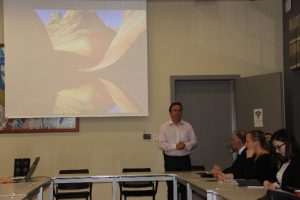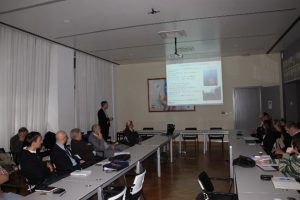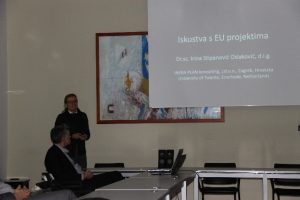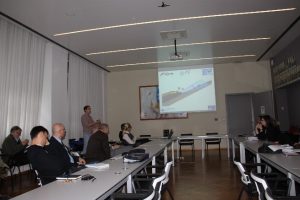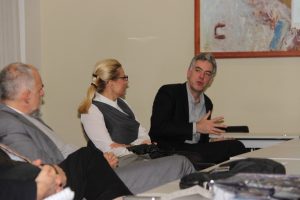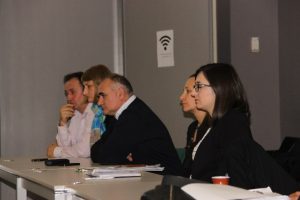On November 8, 2016, at the Faculty of Civil Engineering, University of Zagreb, the Round Table titled “How to Get a Project for Funding under the EU Research Program ‘Horizon 2020’ – Examples of Successful Projects” was held. It was organized by the Croatian Academy of Engineering (HATZ) and the Faculty of Civil Engineering, University of Zagreb. The moderators were Prof. Vladimir Andročec, HATZ President, and Prof. Meho Sasa Kovacevic, Head of HATZ Center for Development Studies and Projects and Head of the Department of Geotechnics at the Faculty of Civil Engineering. Around thirty people attended the event, mainly representatives of the academia (University of Zagreb, University of Split, University North), industry and the Fund for Environmental Protection and Energy Efficiency. The aim of the Round Table was to encourage discussion on how to obtain research and innovation funds from the European projects through which the European Union funds research organizations, small and medium enterprises and other organizations involved in research and innovation.
The first lecture was given by Prof. Kenneth Gavin from TU Delft, who is the coordinator of a series of projects financed through the FP7 and H2020 framework. He pointed out essential elements necessary to obtain funds to finance scientific research projects. On several occasion through lecture, Prof. Gavin stressed the importance of cooperation between academia and industry as necessary in the implementation of such important projects. The following lecture was given by Assist. Prof. Irina Stipanović Oslaković, University of Twente and INFRA PLAN Consulting, who presented a set of guidelines for writing proposals and their successful implementation as well as personal experience regarding participation on projects. In the last speech, Assist. Prof. Mario Bacic from the Department of Geotechnics at the Faculty of Civil Engineering, gave an overview of ongoing projects from the H2020 framework, called DestinationRAIL and GOSafe RAIL, where the Faculty of Civil Engineering contributes as one of the partners. Presentations were followed by a discussion through which the difficulties faced by applicants from Croatia were highlighted. Also, an obvious fact was emphasized – a growing number of partners on successfully evaluated proposals comes from small and medium enterprises and this is a clear indication that the European Commission recognizes the need for development of stronger links between academia and industry in scientific research activities. After the Round Table, the discussion continued through informal socialization with a small banquet.
Prof. Meho Saša Kovačević
